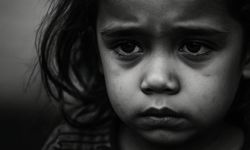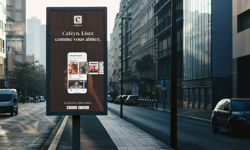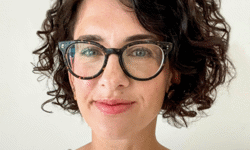“The problem today is that you might not be afraid of the secret police, but you might fear the moral police,” said Ghias al-Jundi, the Syrian Director of the PEN International Writers in Prison Committee and a member of the International Freedom of Expression Exchange’s (IFEX) Tunisia Monitoring Group.
While the dramatic democratic upheavals “have made steps in overcoming power and overcoming the kingdom of fear,” the Islamist groups who were long barred from politics and are now emerging do not have a tradition of political interaction with other groups.
“We respect the elections, but is the victory of Islamists a consolidation of freedom of expression?” he asked. “My feeling is it weakens freedom of expression because the Islamists have not practiced politics for so long. ... The common people are repeatedly convinced that journalists are not on the side of religion, that they are infidels.”
Mr al-Jundi joined a panel of notable experts on Middle East press freedom entitled, “Is the Arab world any closer to securing the right to freedom of expression?” during the two-day Forum, organised by the World Association of Newspapers and News Publishers (WAN-IFRA).
Summaries of all the conference sessions can be found here or on Twitter #afpf12.
Photos from the conference can be found here.
Even in countries that have protection of freedom of expression, those protections are not often respected, said Gamal Eid, Executive Director of the Cairo-based Arabic Network for Human Rights Information (ANHRI).
“Freedom in Egypt is no different from any other country,” he said. “But these rights always depend on political will, and so far there is no political will.”
“They’re just heirs of Mubarak,” Mr Eid said about the ruling Military Council. “You always have cases of violations. There are many lawsuits against journalists and many are accused of defamation. Some in the Military Council are no different than Mubarak.”
Nehad AM Hassouna, a Palestinian journalist, said Palestinian media continue to face repression not only from Israel and also from their own divided system. “The rift between Fatah and Hamas has mobilized them to use the media in the conflict,” he said. “Journalists are paying a dear price in terms of liberty.”
He used the term “social murder” to describe the plight of journalists to are forced to flee. “What is sorrowful here is that nobody recognises that they’re influencing the profession of journalist. The explanation is always about security, and all say their authority is providing more freedom than the others. But there are daily assaults and daily violations of these freedoms.”
The panel also included Mohammed al Khewani, a journalist from Yemen, Nabeel Rajab, Director of the Bahrain Center for Human Rights, and Said Essoulami, Director of the Morocco-based Center for Media Freedoms, MENA Region and moderator of the discussion.
More than 200 journalists, editors, publishers and others from the region and beyond gathered in Tunis for the two-day annual conference.
The event, supported by a partnership between WAN-IFRA and the Swedish International Development Cooperation Agency (Sida), is unique among conferences in the region in that it brings together discussions about press freedom with practical strategic advice for building viable media businesses. More on WAN-IFRA’s media development work and the projects conducted under the partnership with Sida can be found here.
Other partners in the Arab Free Press Forum include UNESCO, the World Editors Forum, Google, Agence France-Presse, International Media Support, World Press Photo and the Dutch Ambassador to Tunisia.










